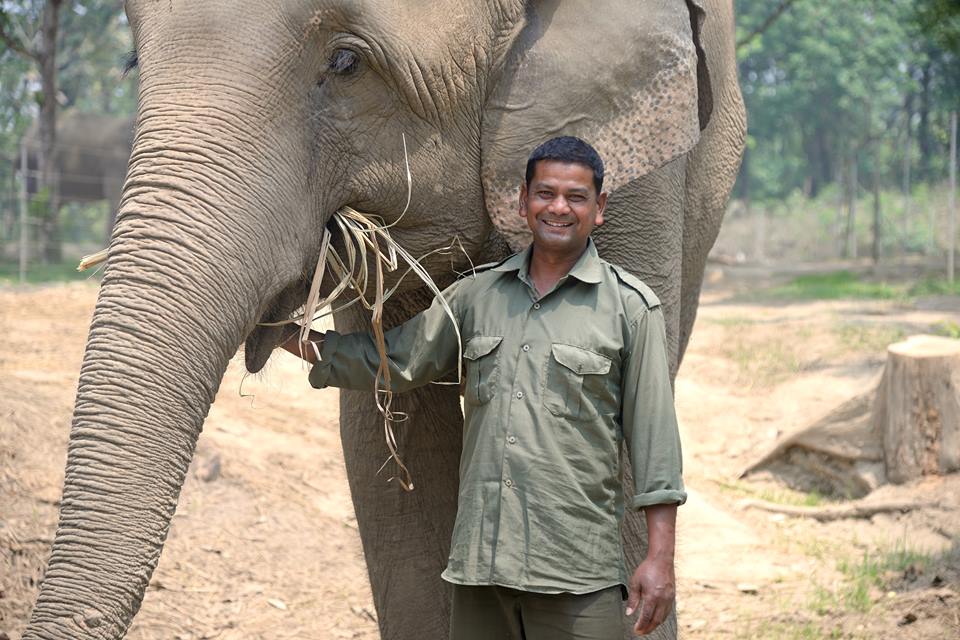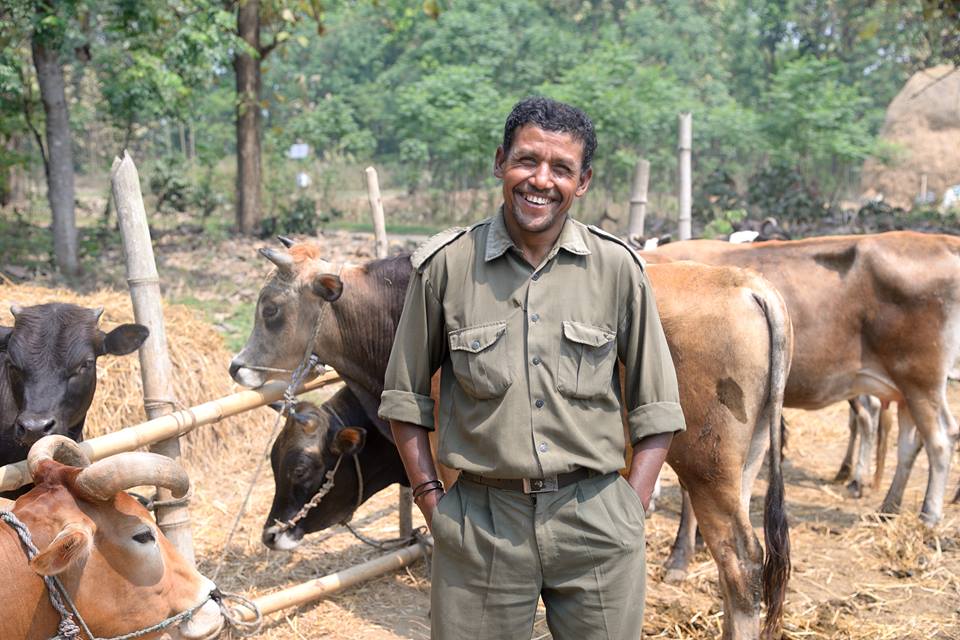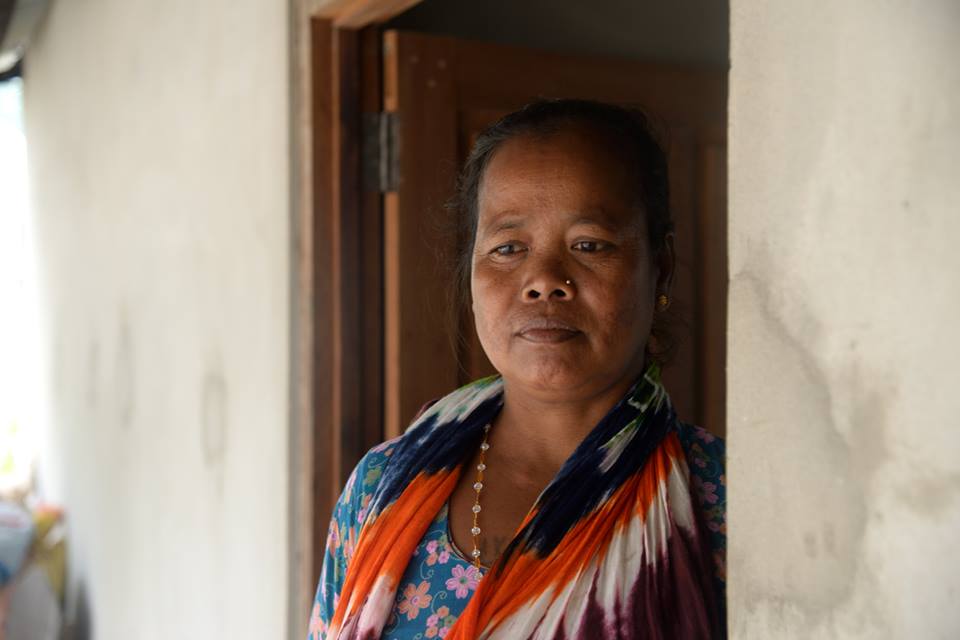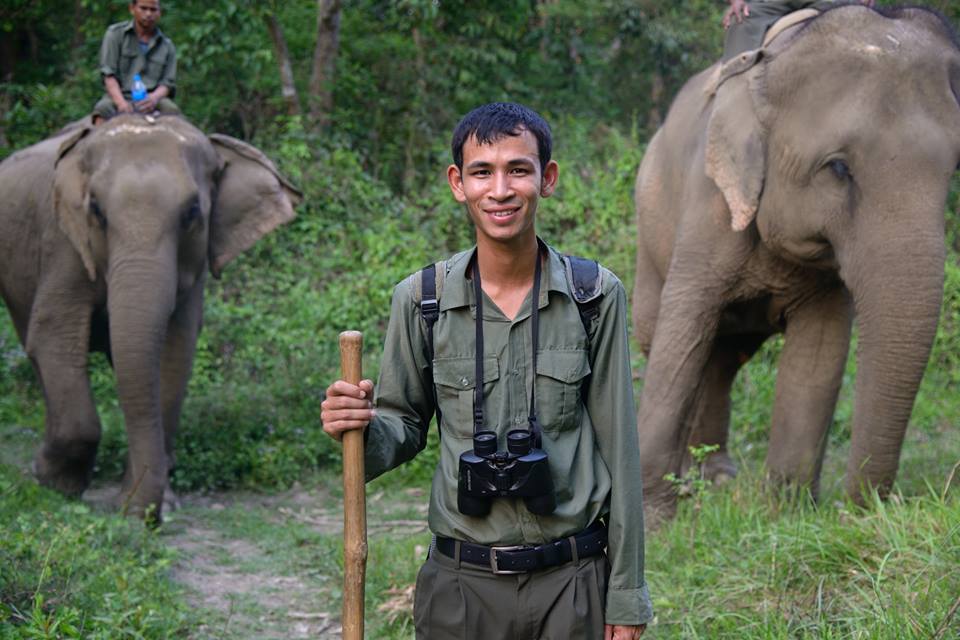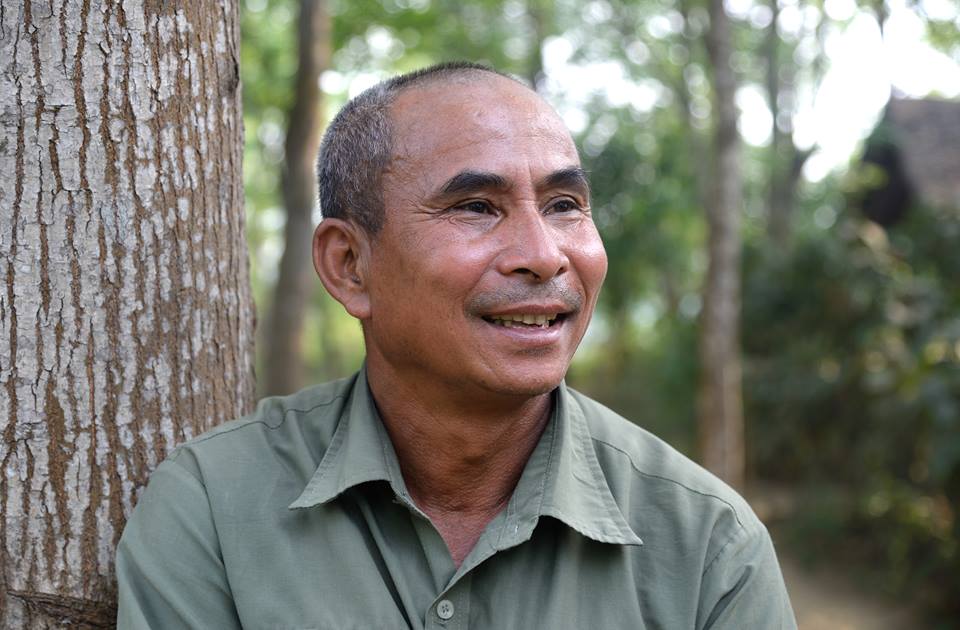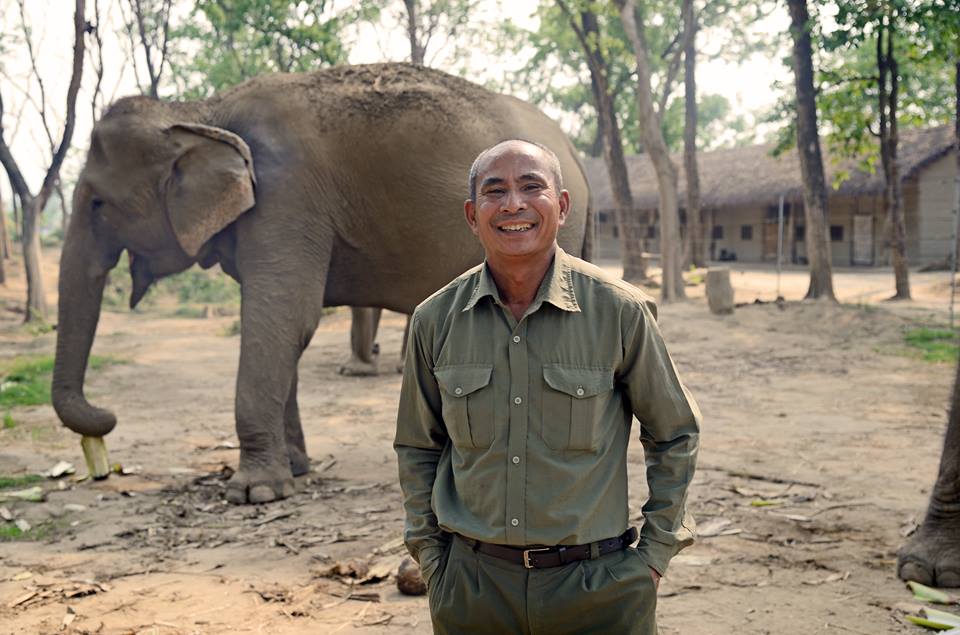
Kale Kumal Meghauli, Chitwan
“For me working with the elephants became the source of my steady income. From the meagre 25 rupees a month working at the farmers shed, my income grew 365 rupees. It was 1988 and that money would buy me 2 quintals of wheat which would last for not one, but two months. At last, with full stomachs to eat, for the first time in our lives, happiness had presented itself in our home. Fromthen on, food was never a problem and I was able to save some of the money I was earning. In a few years, I had already rented farmland and my family had started producing grains to sell. The day I was able to take back the 15 Katthas of my deceased grandfather’s land, that father had mortgaged, was the happiest day of my life…
However, working with the elephants was not an easy thing to do. When I first started, I thought it would be nice to spend time with the elephants. I was not aware that these were beings just like humans, and they have their needs just like we do. As time went by, I was slowly forging relationships with these elephants and maintaining it every day. You cannot be happy with them today, treat them good and abandon them the next day. I remember in the early days when I was dealing with my own frustrations in life, I was in charge of Shamsher. That year, he had just reached his adolescence. One particular day, a few of my friends had warned me. ‘He is unpredictable, he might run away and it will be difficult for you to bring him back. Stay away from his trunk and tusks. If you fail to read him right, prepare to risk your life’, they had said. In the afternoon, as I was cleaning his space for him to rest, I noticed fluids running down his temples. And as I whisked him to the corner, I saw something change in him. He picked me up with his trunk and threw me a few feet away. When I think of that incident today, I know that he was not trying to hurt me. He was trying to warn me to keep distance. ‘My friends were right. I have to leave him to his peace before something happens to me’, I had thought. A few months later, Shamsher killed one of the mahouts which became one of the very sad stories that we talk among ourselves. Even though these incidents can be avoided, the feeling of loss will always remain. From that day on, I tell the mahouts and everyone involved in the husbandry to be careful and to treat the elephants with respect. To understand what they might be trying to communicate, to adapt to them. For without these elephants our lives would have no meaning. Without these elephants, we would have no stories to tell.”
